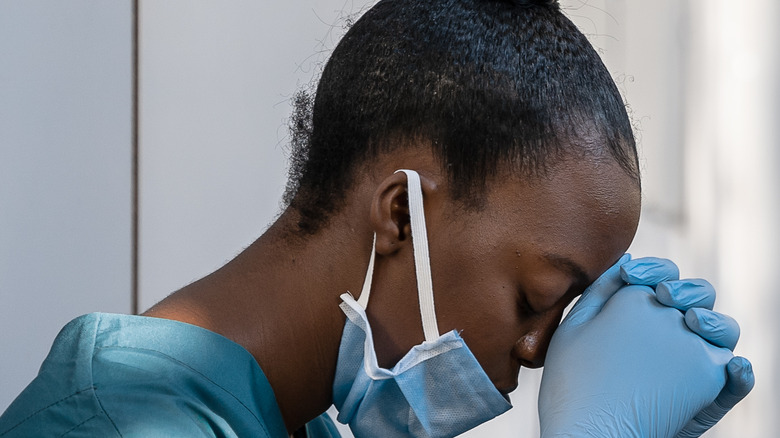This Is Why The US Life Expectancy Continues To Decline
The average life expectancy within a country tends to ebb and flow depending on what is happening with its citizens. According to Verywell Health, how long someone lives can be impacted by their diet, physical activity, their mental health, whether or not they smoke, and if they are maintaining a healthy weight. While individual habits can certainly affect the average life expectancy within a country, so can the efficiency of that country's medical system and whether or not they are able to effectively manage contagious diseases (via Business Insider).
A preliminary new study published in medRxiv has come out in relation to this. It found that life expectancy in the United States has considerably dropped within the past 2 years and has significantly fallen behind 19 of its peer countries. The average life expectancy in the US is now 76.6 years as of 2021, an entire 5 years behind citizens in similar countries. This shocking data naturally brings about the question: Why are Americans dying sooner than their peers?
Reasons for the drop in Americans' life expectancy
COVID-19 has significantly impacted life expectancy around the world. For the past 2 years, it has been one of the leading causes of death in the United States, along with heart disease and cancer (via Kaiser Family Foundation). Considering the nature of the pandemic, these statistics aren't necessarily shocking. What is surprising, however, is that life expectancy in the US is still declining. This is even though COVID-19 vaccines have been readily accessible for some time, per CNN. While life expectancy rates in other countries bounced back in 2021, the U.S is continuing to decline, per CNN.
Researchers theorize the reasons behind this may be contributed to Americans' negligent attitudes around COVID. "This speaks volumes about the life consequences of how the U.S. handled the pandemic," study author Dr. Steven Woolf, director of the Center on Society and Health at Virginia Commonwealth University, told CNN. "What happened in the U.S. is less about the variants than the levels of resistance to vaccination and the public's rejection of practices, such as masking and mandates, to reduce viral transmission."


